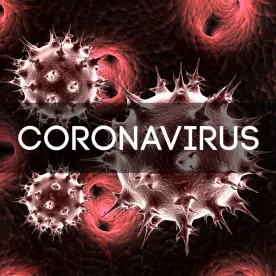In response to the global health crisis, Mayor Muriel Bower has signed the D.C. COVID-19 Response Emergency Amendment Act of 2020 (the “Act”). Unless extended, the Act will remain in effect until June 15, 2020, and, among other things, creates a new category of leave available under the D.C. Family and Medical Leave Act (“DCFMLA”) – declaration-of-emergency (“DOE”) leave – and temporarily eases certain eligibility requirements for unemployment insurance compensation (“UI”).
DCFLMA Leave
The Act amends the DCFMLA to allow employees to take unpaid, job-protected DOE leave. An employee may take DOE leave if the employee is unable to work as a result of the circumstances giving rise to a public health emergency as declared by the Mayor. The need for such leave can be demonstrated by a recommendation from the Mayor, Department of Health, any other District or federal agency, or a medical professional that the employee self-quarantine or self-isolate or by the declaration of public health emergency. The Mayor has ordered that, effective March 25, 2020, all non-essential businesses cease on-site operations, which would appear to meet the requirements described above.
The Act further amends the DCFMLA so that employers in DC of all sizes must provide DOE leave (the DCFMLA generally applies only to employers with 20 or more employees). The Act also waives the DCFMLA’s requirement that an employee must work 1,000 hours and 12-months before being eligible for leave for any “employee who has been ordered or recommended to quarantine or isolate, by the Department of Health, any other District or federal agency, or a medical professional.”
Unemployment Insurance Compensation
During its 90-day effective period, the Act modifies UI eligibility requirements for “affected employees” who have become unemployed or partially unemployed as a result of the pandemic in the following ways:
- Affected employees will not have to actively seek work to qualify for UI.
- Affected employees will be entitled to UI even if their employer has “provided a date certain” for their return to work or if they have “a reasonable expectation of continued employment” with their employer.
- Affected employees will be deemed to have “good cause” for voluntarily leaving their employment if their employer:
- “Fail[s] to timely comply with a written directive from the Mayor or Department of Health in relation to public safety measures necessary to protect its employees or the public during the public health emergency;” or
- Requires “that an employee be physically present in the workplace despite the employee . . . . [h]aving . . . [b]een quarantined or isolated by the Department of Health or any other applicable District or federal agency; or . . . [s]elf-quarantined or self-isolated in a manner consistent with the recommendations or guidance of the Department of Health, any other applicable District or federal agency, or a medical professional.”
The Act defines “affected employee” as an employee who has “been determined by the Mayor to have become unemployed or partially unemployed as a result of the circumstances giving rise to the public health emergency.” It includes an employee who has “been quarantined or isolated by the Department of Health or any other applicable District or federal agency;” “self-quarantined or self-isolated in a manner consistent with the recommendations or guidance of the Department of Health, any other applicable District or federal agency, or a medical professional;” or whose employer has “ceased or reduced operations due to an order or guidance from the Mayor or the Department of Health or a reduction in business revenue resulting from the circumstances giving rise to the public health emergency.”




 />i
/>i

